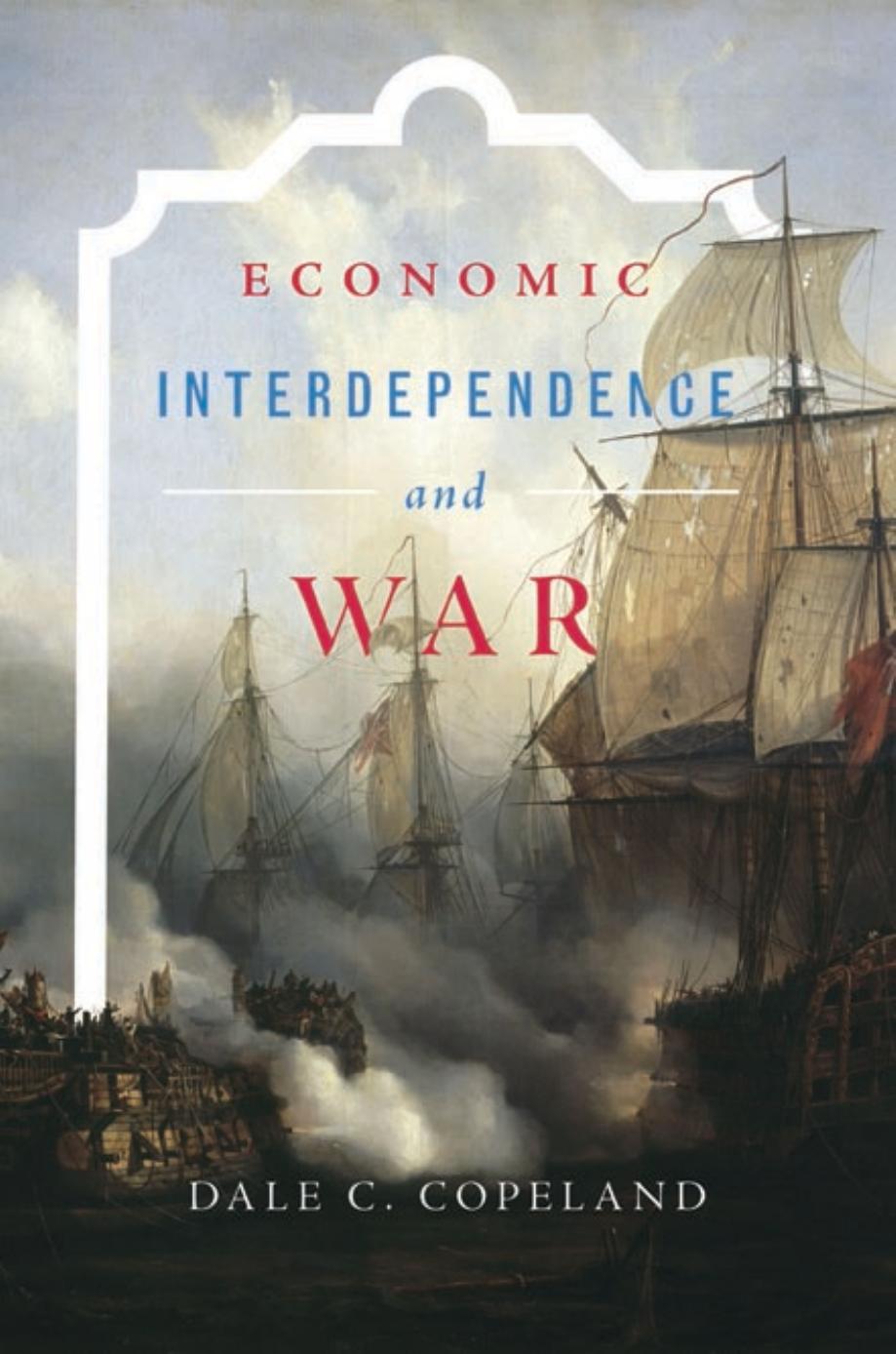Economic Interdependence and War by Copeland Dale C

Author:Copeland, Dale C.
Language: eng
Format: epub, pdf
Publisher: Princeton University Press
Published: 2014-07-14T16:00:00+00:00
THE BEGINNING OF THE COLD WAR
The causes of the Cold War can be traced to the trade and financial expectations held by both the Soviet Union and United States as they emerged from World War II. Four years of German occupation had left the Soviet Union in tatters, with thousands of villages flattened, a quarter of its industrial capacity destroyed, and twenty-seven million dead. To rebuild, Moscow desperately needed to keep US trade and loans flowing after war’s end (Congress having approved lend-lease aid only for wartime). It also needed reparations from Germany, and a reorientation of Eastern Europe toward Russia and away from traditional trading partners in Western Europe. Finally, it wanted access to potential oil supplies in Iran, given Russian import needs. By 1944–45, the Soviets were worried: Would Washington facilitate or hinder the realization of these ends?
US concerns, especially by April–June 1945, were of a different sort. Washington feared that war-devastated peripheral states, even without Moscow’s active encouragement, would fall to Communism. The Americans knew that any small state that “went Communist” would likely realign its foreign-economic policy toward Moscow’s sphere, seeing the Soviet economic model as the wave of the future. And precisely because of Russia’s great needs, Moscow would welcome such states and then sever their commercial ties with the West.
The threat of fragile peripheral states in Western Europe going Communist was real. Communist groups that had played critical roles in wartime resistance movements were poised to exploit domestic conditions to seize power—by either the rifle barrel or ballet box. Key states such as France, Italy, and Greece were particularly vulnerable. Through 1945, US leaders looked to Eastern European states as litmus tests of future Soviet economic policy, and did not like what they saw (Leffler 1992). The Americans could understand why Moscow needed to keep Poland, the historical invasion route to Russia, so firmly within its grasp. But Russia’s tight neomercantilist policy toward Romania and Bulgaria in 1945 suggested that if other European states fell to Communism and were pulled into the Soviet sphere, the US economy would be severely undermined.6 Should these effects snowball across Eurasia, the Soviet Union might find itself the dominant global superpower without having to fire a shot.
Given these threats, any responsible US statesperson had but one option: contain Russia’s growth by restricting its access to trade and loans while redirecting US goods to the faltering Western economies, notwithstanding the risks of provoking a trade-security spiral. I show that US leaders began to take such measures as early as April–June 1945—a good two years before the Marshall Plan and Truman Doctrine were announced. The United States also built up a strong position in the Middle East to help reduce Russia’s influence in this vital region. These shifts in behavior were already well under way by the time of President Roosevelt’s death in April 1945. US policy from May to August 1945, however, took a decidedly hard-line turn, driven by one major fact: by spring 1945, it was clear to
Download
Economic Interdependence and War by Copeland Dale C.pdf
This site does not store any files on its server. We only index and link to content provided by other sites. Please contact the content providers to delete copyright contents if any and email us, we'll remove relevant links or contents immediately.
| Elections & Political Process | Ideologies & Doctrines |
| International & World Politics | Political Science |
| Public Affairs & Policy | Specific Topics |
| United States |
The Secret History by Donna Tartt(19023)
The Social Justice Warrior Handbook by Lisa De Pasquale(12182)
Thirteen Reasons Why by Jay Asher(8882)
This Is How You Lose Her by Junot Diaz(6869)
Weapons of Math Destruction by Cathy O'Neil(6260)
Zero to One by Peter Thiel(5782)
Beartown by Fredrik Backman(5729)
The Myth of the Strong Leader by Archie Brown(5491)
The Fire Next Time by James Baldwin(5421)
How Democracies Die by Steven Levitsky & Daniel Ziblatt(5209)
Promise Me, Dad by Joe Biden(5139)
Stone's Rules by Roger Stone(5078)
A Higher Loyalty: Truth, Lies, and Leadership by James Comey(4945)
100 Deadly Skills by Clint Emerson(4910)
Rise and Kill First by Ronen Bergman(4772)
Secrecy World by Jake Bernstein(4736)
The David Icke Guide to the Global Conspiracy (and how to end it) by David Icke(4696)
The Farm by Tom Rob Smith(4500)
The Doomsday Machine by Daniel Ellsberg(4480)
